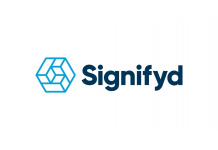Stripe Radar Now Protects ACH and SEPA Payments from...
- 01.05.2025 01:55 pm
AU10TIX Prevents an Estimated $7.5 Billion of Identity...
- 14.01.2025 02:45 pm
IXOPAY Announces Support for Network Tokenization
- 12.12.2023 12:55 pm
Entrust Elevates Assurance for Digital Transactions...
- 16.11.2023 08:30 am
Cohesity Collaborates with Microsoft to Simplify How...
- 11.04.2023 03:35 pm
Provenir Earns Coveted ISO/IEC 27001 Accredited...
- 02.02.2023 05:45 am
Expansion Continues for PXP Financial with Canada...
- 07.04.2022 01:36 pm
Government-targeted DDoS Attacks Surge by Over 1,800%...
- 06.04.2022 11:29 am
Rabobank Counters Growing Ransomware Crisis with...
- 06.04.2022 09:33 am
Sumsub Launches NFC Verification to Make Online ID...
- 28.02.2022 03:40 pm
Signifyd Adopts Four-day Workweek to Avoid Burnout,...
- 11.01.2022 05:50 pm
Majority of Public Expect Banks to Pay Out for Rising...
- 09.12.2021 09:20 am























